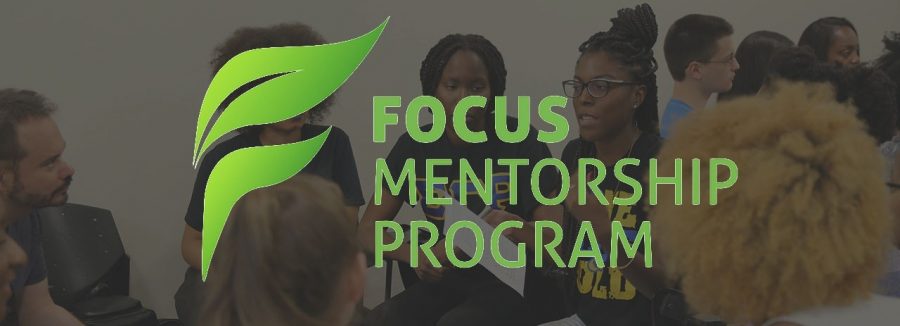First-Generation Students Thrive Under FOCUS Program
A new mentorship program called FOCUS helps first-generation students of color adjust to NYU.
September 28, 2018
As of Fall 2018, 20 percent of first-year students at NYU identify as first-generation students, 11 percent as African American and 21 percent as Latin American. Despite increasing proportions, many first-year students of these underrepresented backgrounds still experience difficulties integrating into NYU.
As a first-generation Latino student, Tisch sophomore Kenny Leon welcomed the support of a mentor who was in the same boat as him. “I had no clue what was going on, no idea what I was doing,” Leon said, in reference to arriving at college. “That’s why I felt like I needed to join FOCUS, to help me connect a little bit more, become a little more accustomed.”
FOCUS is a mentorship program created by the Center of Multicultural Education and Programs. FOCUS is tailored to first-year, first-generation students of color with the goal of helping these students build community, access resources and achieve academic and personal growth at NYU.
“NYU is a huge place,” Leon said. “Not only is it separated by different schools within the institution, [but] we’re also separated geographically, culturally. If there’s one thing you need to do here at NYU, it’s to find someone who can connect you to all of it. And that’s pretty much what FOCUS helps you do.”
CMEP Director Leah Lattimore agrees that first-generation students deserve to have resources like the FOCUS mentorship to help their transition into college.
“There’s something very immediate that we can provide to first-gen students of color in this large, cacophonous place,” Lattimore said. “If you have someone who you feel is an advocate for you and can help you advocate, then we are doing something great.”
Last year, Leon engaged in FOCUS as a mentee. At FOCUS, each mentee is paired with a mentor of similar socio-economic background, academic and professional aspirations and goals for the program. The right pair is created through extensive application forms and follow-up paperwork, in which each applicant details such information.
For Steinhardt junior Karen Lemus, who was a FOCUS mentee during her first year, her mentor’s similar experiences certainly resonated with her.
“We both come from immigrant families, and we often talked about shared struggles like language barriers,” Lemus said. “There was just a common understanding that I wouldn’t have had with anyone else.”
Mentor-mentee pairs are expected to meet at least once a month in person, and check in via other media at least once every two weeks, accounting for the often busy schedules of both parties.
What goes on during these meetings? Although the specifics vary between pairs, the general guidelines don’t change.
“It’s honestly just whatever you want,” Leon said. “You can talk to them about everything — anything you’re stressed about, classes, life, anything.”
Lemus agreed: “If I was going through anything — friendship problems, problems at home, romantic relationships, academic projects — I would ask [my mentor] for advice.”
Aside from regular mentorship meetings, FOCUS also hosts multiple developmental dinners and organizes many free events for mentors and mentees to socialize with others within the program. Past events have included movie screenings, trips to Broadway shows, dinner at Max Brenner and various museum visits. “I’ve met some of my closest friends through going to all the different dinners and events,” Leon said.
Outside of FOCUS events, Leon’s mentor gave him advice and insights that smoothed his transition into college life.
“Talking to professors after class, asking them for opportunities outside of the classroom,” Leon said. “I didn’t know I could do any of that until my mentor told me. He helped me with resources, feeling confident and just letting me know that I’m not the first person to ever do this. At some points last year, he and CMEP were my lifeline.”
Like Leon’s, FOCUS has played a crucial role in the transitions of many other first-gen students. Lattimore, who attended grad school at NYU, was once a FOCUS mentor herself.
“Seeing students transform from dealing with impostor syndrome and doubting whether they belong here, to blossoming into a leader and recognizing that ‘I have something to offer, I have a voice that I’m going to contribute;’ that’s one of the most rewarding things,” Lattimore said.
When asked what he would say to incoming first-year students who are considering applying to FOCUS, Leon was passionate. “One hundred percent, do it,” Leon said. “You never know, you could become great friends with your mentor, and down the line, they could introduce you to scholarships, job opportunities and other amazing resources. It’s honestly such a great environment.”
For more on FOCUS and its application process, visit its website. Aside from FOCUS, CMEP also runs other programs and events to promote student diversity and social justice.
Email Belle Lu at [email protected].
























































































































































